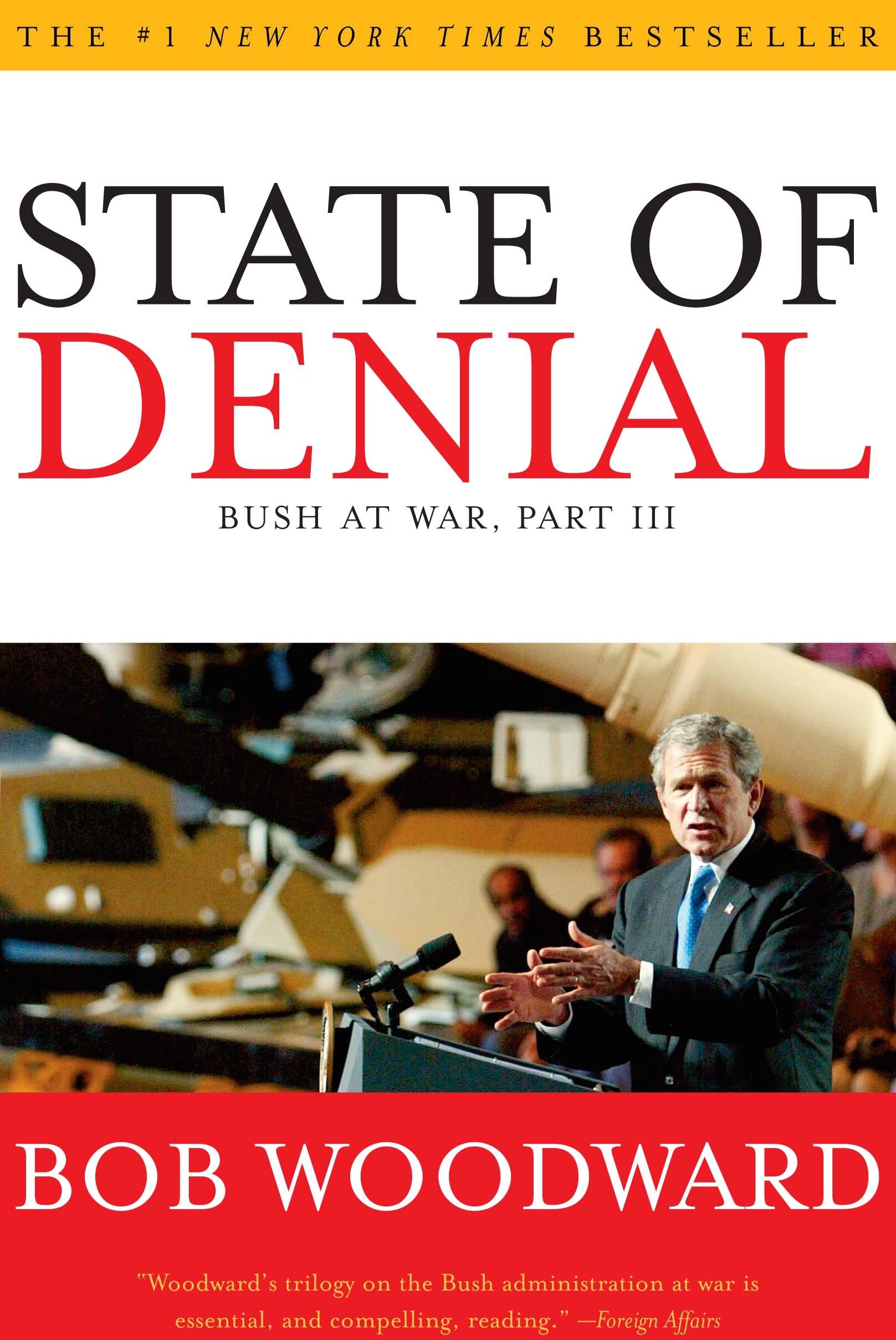STATE OF DENIAL
“State of Denial feels all the more outraged for its measured, nonpartisan tones and relentless reporting. It is nothing less than a watershed...In crisis after crisis, the government simply failed to operate the way it was designed to."
Ted Widmer, The Washington Post Book World
“INSURGENTS AND TERRORISTS RETAIN THE RESOURCES AND CAPABILITIES TO SUSTAIN AND EVEN INCREASE CURRENT LEVEL OF VIOLENCE THROUGH THE NEXT YEAR.”
This was the secret Pentagon assessment sent to the White House in May 2006.
The forecast of a more violent 2007 in Iraq contradicted the repeated optimistic statements of President Bush, including one, two days earlier, when he said we were at a “turning point” that history would mark as the time “the forces of terror began their long retreat.”
State of Denial examines how the Bush administration avoided telling the truth about Iraq to the public, to Congress, and often to themselves.
Two days after the May report, the Pentagon told Congress, in a report required by law, that the “appeal and motivation for continued violent action will begin to wane in early 2007.”
In this detailed inside story of a war-torn White House, Bob Woodward reveals how Andy Card, with the indirect support of other high officials, tried for 18 months to get Defense Secretary Donald Rumsfeld replaced. The president and Vice President Cheney refused.
At the beginning of Bush’s second term, Stephen Hadley, who replaced Condoleezza Rice as national security adviser, gave the administration a “D minus” on implementing its policies. A SECRET report to the new Secretary of State Rice from her counselor stated that, nearly two years after the invasion, Iraq was a “failed state.”
Woodward reveals that the secretary of Defense himself believes that the system of coordination among departments and agencies is broken, and in a SECRET May 1, 2006, memo, Rumsfeld stated, “the current system of government makes competence next to impossible.”
State of Denial answers the core questions: What happened after the invasion of Iraq? Why? How does Bush make decisions and manage a war that he chose to define his presidency? And is there an achievable plan for victory?
Reviews:
“[S]erious, densely, even exhaustively, reported, and a real contribution to history…This is a primer on how the executive branch of the United States works, or rather doesn’t work, in the early years of the 21st century.”
Peggy Noonan, The Wall Street Journal
“Woodward’s trilogy on the Bush administration at war is essential, and compelling, reading.”
Foreign Affairs
“The most revealing in-the-room glimpse of the Bush administration that we have so far.”
Walter Shapiro, Salon.com
"State of Denial is a dogged piece of reporting, rich in anecdote, telling detail, fascinating snippets of conversation and troubling stories heretofore untold."
Tim Rutten, Los Angeles Times
“[Enriches] the reader’s understanding of the inner workings of this administration at this critical moment.”
Michiko Kakutani, The New York Times
“State of Denial is brimming with vivid details about White House meetings, critical phone calls, intelligence reports, and military affairs…impressively detailed and eye-opening.”
Chuck Leddy, The Boston Globe






